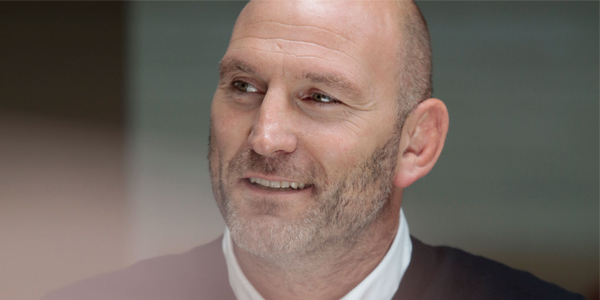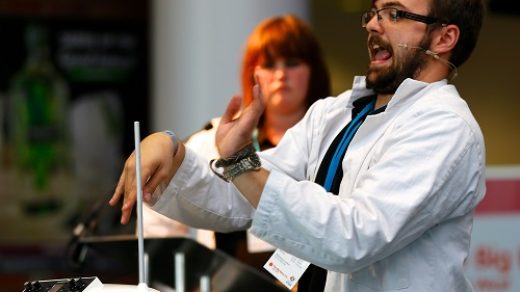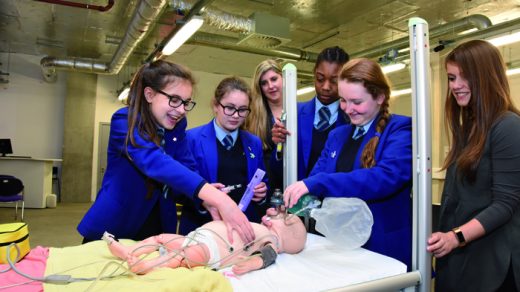Focus on physical activity

Schools should be inspected for the fitness level of their pupils as much as for their academic achievements, according to the former England rugby captain Lawrence Dallaglio.
The 2003 World Cup winner wants Ofsted to look at how physically active pupils are when assessing school performance as part of government efforts to tackle the childhood obesity crisis.
In an interview with The Sunday Times, Dallaglio said extending Ofsted’s focus so that schools are assessed on the amount of exercise pupils do would transform the nation’s health.
Stephen Brierley, principal of St Margaret’s CofE Academy
It’s always good to hear celebrities’ (or anyone else’s) views on education. After all, education is a publicly-funded service, and it’s a human right – everyone should have a say! That’s what democracy’s all about.
And Lawrence Dallaglio has made a shrewd observation about the way 21st century education works in this country: if you want something to change, try and persuade Ofsted to inspect it!
To be honest, that’s a pretty sad reflection on the way things are. We have such a high-stakes inspection system that when someone thinks we need to change, they bypass the Government, they bypass school leaders, and instead appeal directly to the inspectorate. Oh, for a system where inspection was a servant and not the master!
Of course there have been lots of moves recently to make our curriculum more academic, more stretching. Not all heads are 100% happy with the EBacc curricula we are now being firmly encouraged to follow (I’m not).
Even Ofsted are starting to ask questions about it. I’d agree definitely with Lawrence that physical activity for youngsters is hugely important and sadly undervalued in our brave new EBacc world. By the way, I’d also put in a strong case for music, for drama, for the arts, for technology, for vocational education and for all the other areas that languish outside the EBacc limelight.
But to say the academic and the physical are equally important? Sorry, Lawrence, that’s going a bit too far. I’m all for a better balance between the two, but let’s not over-egg the pudding. After all, over-egged puddings would probably only make our national obesity problem that much worse…
James McGinn, North LSSP partnership manager
It is an obvious fact that physical fitness is an intrinsic element to a person’s health and wellbeing, and unfortunately, be it the fast pace of life, or the incessant ‘motivation’ for improved academic achievement, unfortunately, schools are struggling to find the time to provide enough high quality PE and school sport experiences for their pupils; a very worrying fact given that lifelong habits are developed during these formative years.
Once upon time, and not very long ago, spurred on by the lack of medals won at the Sydney Olympics, the nation was moved to address the perceived inadequacies of school sport. As a result, the Physical Education, School Sport and Club Links (PESSCL) Strategy was introduced and despite having significant impact, the programme was cut by the former Education Secretary Michael Gove.
Despite this, schools still do recognise the importance of providing at least two hours a week of high quality PE and school sport, indeed, LSSP support schools to attain the nationally recognised School Games Awards.
In addition, the PE and School Sport Premium, which all primary schools received, does go some way in supporting schools to provide additional, and sustainable, activities which encourage pupils to participate and develop a life-long sporting habit. However, it is clear the quality of a school is judged on its academic performance rather than a holistic view.
As providers of a vast array of services which support schools to develop their pupils’ physical, social and emotional wellbeing, LSSP would welcome a greater focus from Ofsted in ensuring that all schools provide at least two hours of high quality PE. But I would not like to see the inspection of pupils’ physical fitness as I believe this would be ultimately detrimental to encouraging all pupils to participate in life-long physical activity.
Michael Dooling, English schools track and field championship secretary
I totally agree with what Lawrence is saying, I have been involved with athletics and school sports at all levels for over 50 years.
Ofsted’s perspective is far too narrow, children need to be involved in sports not only for their health but also for their wellbeing. Ofsted have missed out on a trick especially on the social side, the people I work with say that sports do so much for the kids health and also their social wellbeing and can lead to so many opportunities.
I am very passionate about children being given the opportunities that sports offer and the healthy impact it has on their lives. I have seen it first hand as a sports teacher, if you give the child an opportunity to express themselves through sports the benefits are infinite, I have seen the changes in children through sport.
I am currently running a cross country scheme to address the different levels in the sport where children are given the opportunity to run at the same levels as other athletes through a staggered starting point, not only will this keep the child interested in sport but will also boost their moral. I would like to see this go national and taken up by all athletic clubs, just think of the benefits it would have for schools.
But yes, Lawrence you are right on the point they are not looking at the whole child just the academic child.




